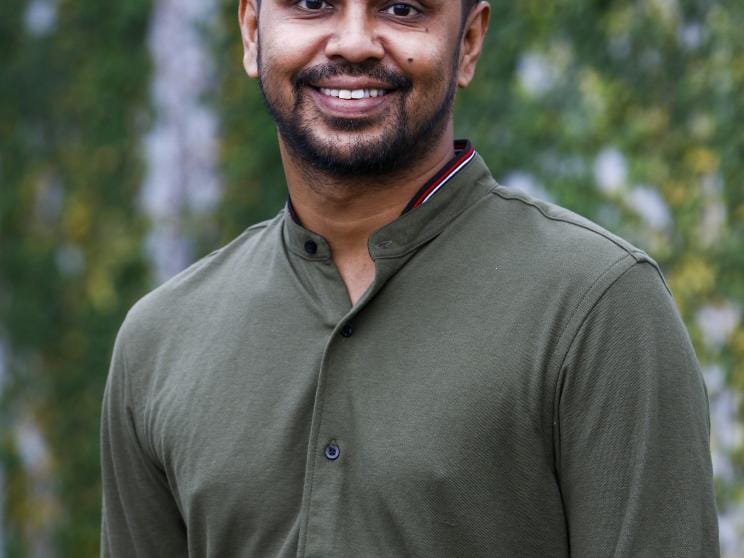‘I’ve spoken against fascists for years, I was never afraid of backlash’

"I've always advocated for the abolition of censorship from any sort of art, so it was a stark irony to find my name listed as a member of the newly formed censor board," shared Ashfaque Nipun. "However, with all respect to those who have considered me qualified for the position, I have courteously declined the offer."
A notification issued on Sunday (September 15) by Saiful Islam, the Deputy Secretary of the Ministry of Information and Broadcasting, announced the formation of a new 15-member committee. Ashfaque Nipun was one of the announced members alongside others.

The list of members included names that offered a ray of hope, suggesting the potential for a reform body that could bring about positive changes in filmmaking, particularly in terms of greater creative freedom and reduced censorship.
However, just a few hours after the announcement, the "Mohanagar" director took to his social media to announce that he had declined the proposal. In the meantime, after the announcement from the ministry and before Nipun's clarification, social media buzzed with diverse opinions—some were pleased with this decision. In contrast, others expressed disappointment, labelling it as 'biased' of the ministry.
"It took some time to reach them, which is why my response was delayed. For those still expressing doubts, you, as a journalist, can confirm the fact with the Ministry of Information and Broadcasting," he told this reporter during the interview.
"I was in the middle of recording a podcast when the announcement came through. When I finished the show, my phone was flooded with calls and messages from journalists and colleagues. Honestly, the first thing I did was contact the ministry, which is why it took some time before I made my post. I didn't want to put them in a difficult position, so I informed them first before publicly announcing my decision."

Was Nipun unaware of this decision by the Information and Broadcasting Ministry? On the same day, he was also named to the list of the board of trustees of the Artistes Welfare Trust. "Artistes Welfare Trust belongs to a separate ministry. It is under the Ministry of Cultural Affairs, and they did contact me before the announcement. I also had a clear conversation with them regarding my role, before I agreed to be one of the trustees."
He however clarified that he was unaware his name had been included on the list of censor board members. "It took some time to reach them, which is why my response was delayed. For those still expressing doubts, you, as a journalist, can confirm the fact with the Ministry of Information and Broadcasting," he told this reporter during the interview.
Many social media users, along with some of Nipun's colleagues from the entertainment industry, made critical remarks, pointing out that he had never directed a feature film—a fact that didn't go unnoticed by him. Some argued that he declined the proposal only after facing public pressure.
In response, he stated, "For the last 15 years, I've held even more critical positions for being outspoken against a fascist government, so it's absurd to think that way! As for the feature film argument, the format of productions we create for TV or OTT platforms is essentially the same, so technically, that claim is baseless."

Nipun also raised a valid question: If the board includes critics, writers, and actors, why are only directors expected to prove their 'ability' by directing a full-length feature film?
On September 18, Information Adviser Nahid Islam stated to the media, that a certification board will be formed soon under the Bangladesh Film Certification Act, 2023. "On September 15, I spoke to the ministry and explained to them that the process needs to be implemented faster. Films scheduled for release, such as 'Shonibar Bikel' and other productions by the FDC, are also awaiting their debut. These projects need to reach theatres soon."
Nipun further clarified, "They assured me that the position they offered wasn't compensation for my involvement in the July movement, nor because I had been oppressed under the Awami League regime. They felt I might be declining for those reasons, but that wasn't the case either for me or any other member of the board."
"For the last 15 years, I've held even more critical positions for being outspoken against a fascist government, so it's absurd to think that way! As for the feature film argument, the format of productions we create for TV or OTT platforms is essentially the same, so technically, that claim is baseless."
As we came to the end of the conversation, Nipun emphasised the potential changes in the film industry, Nipun uttered his concerns about the need for greater responsibility from exhibitors and the distribution system once the certification process begins. "It's a chain process, and as the supporting wing, other sectors need to be more cooperative and, above all, take greater responsibility in fulfilling their duties."




 For all latest news, follow The Daily Star's Google News channel.
For all latest news, follow The Daily Star's Google News channel. 
Comments